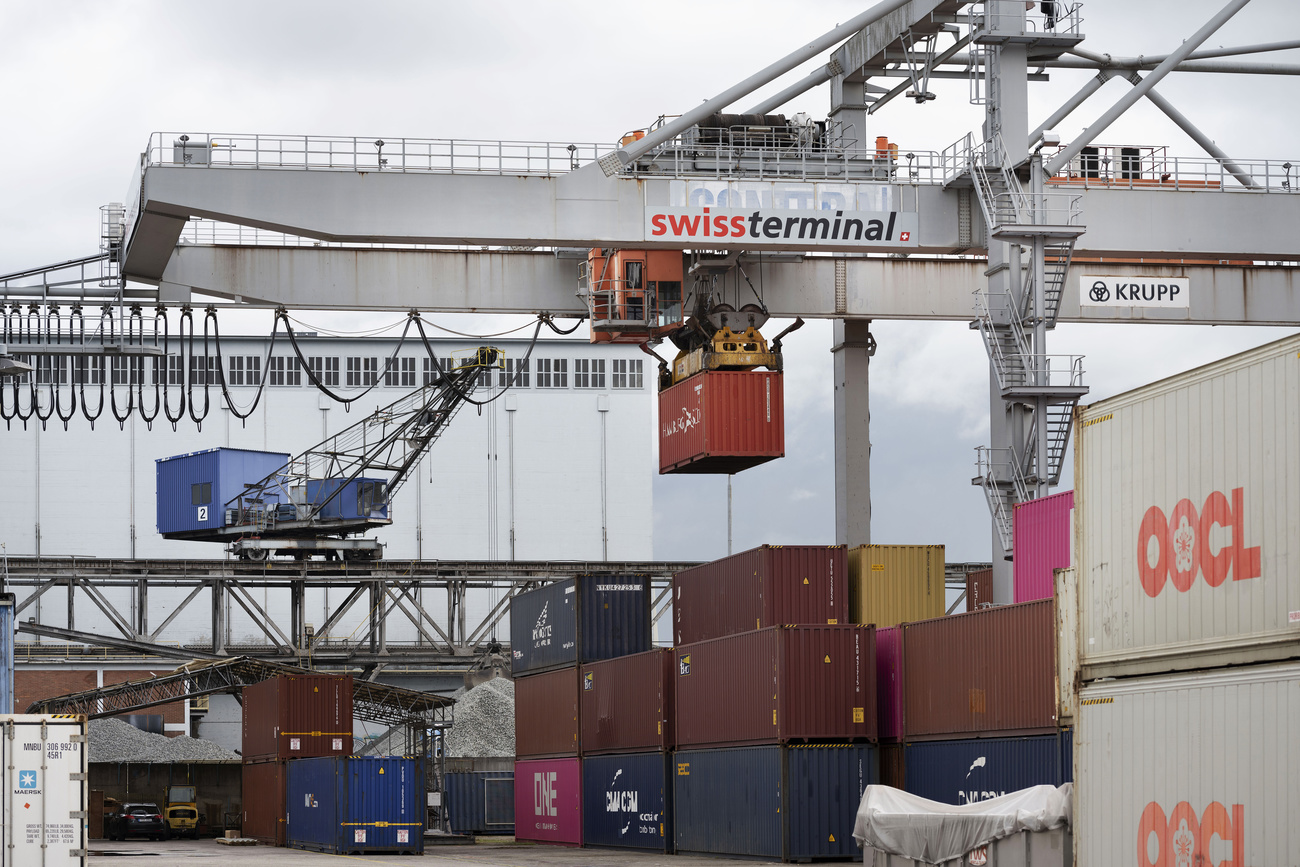

Switzerland Today
Hello from Bern!
July 7 is Global Forgiveness Day and World Chocolate Day. But what’s been happening in Switzerland on a sweet day like this?

In the news: a load of money for Swiss football clubs, a shortage of qualified staff and concerns about a lack of natural gas.
- The president of the Swiss gas industry platform, André Dosé, has warned that looming gas shortages elsewhere in Europe and exploding prices amount to a “huge problem” for Swiss supplies. In a newspaper interviewExternal link,, he said the situation was largely “self-inflicted” and that the Swiss energy strategy – backed by voters in 2017 – was “built on sand”: it didn’t take into account population growth or the shift towards electricity-powered transport, he said.
- The Swiss economy has recovered well from Covid-19, but despite the free movement of people agreement with the EU, some sectors are struggling to recruit qualified staff, says a government report. The unemployment rate in spring 2022 returned to its pre-pandemic level for both Swiss and foreign employees, according to the latest report by the State Secretariat for Economic Affairs. The current jobless rate is the lowest in 20 years.
- Some Swiss top-flight football clubs have benefited from apparent flaws in a government scheme to help companies and individuals hit by the Covid lockdown in 2020 and 2021. A report by the public SRF broadcaster says the clubs received around CHF10 million too much in financial support.

Why there’s no abortion debate in Switzerland
Apart from a series of small demonstrations over the past weeks, the reaction in Switzerland to the recent decision by the US Supreme Court to tighten abortion rules has remained muted. Why is this?
As the Neue Zürcher Zeitung newspaper points out, the abortion rate in Switzerland is one of the lowest in the world with 6.7 terminated pregnancies per 1,000 women in 2021. This has been the case since 2007, according to official statistics and despite the introduction of liberal abortion rules 20 years ago.
Two factors in particular could help explain the low rate, according to Clémentine Rossier of the University of Geneva. It’s the sex education system organised in Swiss schools and the network of family planning centres across the country, she recently told swissinfo.ch.
But even though public reaction to the US court decision is limited at the moment in Switzerland, opponents of abortion are pursuing their objectives. Conservative and right-wing groups have started collection signatures for two proposals. One wants to introduce a one-day reflection period before an abortion is performed. The other aims at banning late-stage abortions.
As it stands, chances are slim that either of these people’s initiatives winning a majority at the ballot box, observers say.

The Swiss economic exception – will it last?
Gas might be looking scarce, and winter chilly, but going by the stats, the Swiss economy is boiling. While the rest of Europe is struggling with high inflation, in Switzerland prices are rising by 3.2% (compared to 8.6% in the euro area) – and economists don’t expect this to change much. GDP forecasts for the year might have been slightly revised since the war in Ukraine, but they aren’t plummeting; UBS said yesterday it expects 2.4% growth this year, rather than the 2.5% previously expected.
In the past 24 hours, to add to this, two records were reached. Yesterday, the Swiss franc reached its strongest level against the euro since 2015, with €1 at CHF0.9875. And then this morning, the economics ministry said that the unemployment rate was at its lowest in two decades: 2%. While the summer months traditionally see less joblessness, thanks to tourism and more outdoor building work, officials are also happy about the long-term picture – and are even concerned about filling high-skilled positions.
But is it all sustainable? In an update today, experts from the Raiffeisen bank warned that the surrounding “stagflation” (inflation combined with low growth) might also have an impact soon in Switzerland, and that we shouldn’t read too much into unemployment stats, which tend to be a delayed indicator of the economy.
Read more on the Swiss unemployment rate and how it’s calculated here; on the reasons for the strong franc here; and on the struggle to recruit skilled workers, in Switzerland and elsewhere, here.
More

In compliance with the JTI standards
More: SWI swissinfo.ch certified by the Journalism Trust Initiative






























